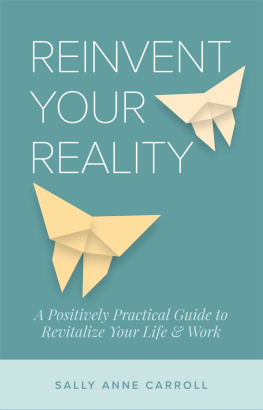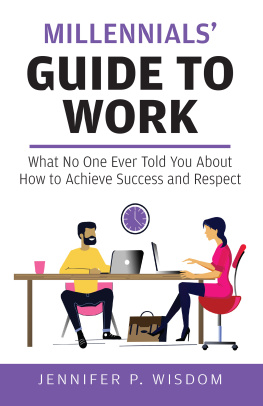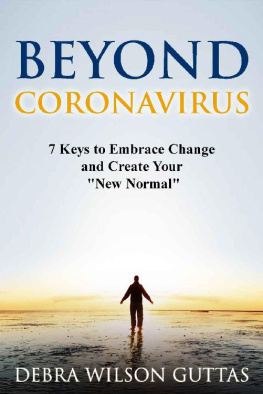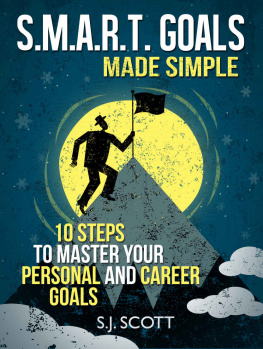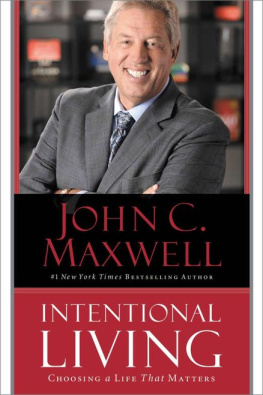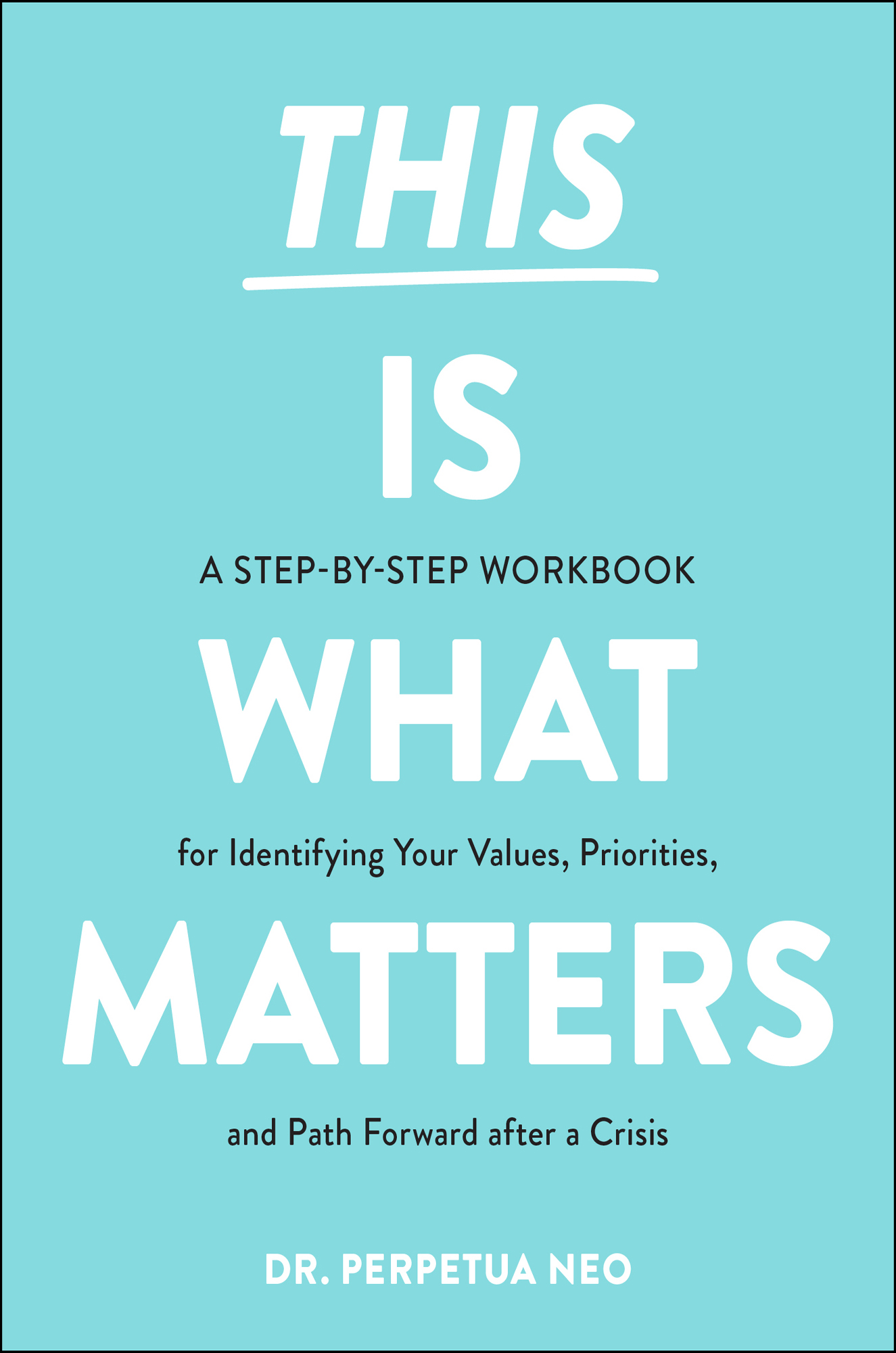Contents
Guide
This Is What Matters
A Step-By-Step Workbook for Identifying Your Values, Priorities, and Path Forward after a Crisis
Dr. Perpetua Neo
DEDICATION
To my parents and grandparents, for teaching me that I have nine lives, each brighter and wiser than the last.
INTRODUCTION
If youre reading this, something in your life has changed. It could be a sudden illness that has you questioning everything you had assumed about the future. Maybe its a loss of some kind, such as the passing of a loved one, that has left you feeling stuck. Or it could be something that you thought would be positive, like a promotion, that has caused unexpected anxiety.
Regardless of the situation, what matters is that youre going through itits real for you. And while it may be difficult to see it this way now, this experience offers a unique opportunity: Its a chance to look at your life with fresh eyes and reevaluate what is important. Is what youre doing in line with your larger goals? Do your daily habits and priorities reflect the things you deeply value?
If your answer to these questions is no, thats okay. This Is What Matters is here to help you get back on track with what is truly important and let go of what isnt. In Chapter 1, youll learn how to not just accept but partner with the reality of whats happening in your life in order to make beneficial changes. Youll also reflect honestly on what the journey from crisis to living a life aligned to what matters will look like, and how to stay motivated and optimistic through the highs and lows of your progress.
Then, youll use fifty guided exercises to reflect across the main areas of your life, from your relationships and home to your career and personal values. In each chapter, youll consider what youd like more of and less of in one of these areas, and what you can do about this right now. Youll set specific intentions and goals for the chapter, learn why each exercise matters, explore what youve learned as a result, and discover a plan to take action using the insights youve gained.
Building your new life around what matters consists of building new habits, and the exercises in this book will guide you in deciding the habits that are needed for creating a life that is meaningful to you. Of course, like building muscles in the gym, these habits can feel difficult to keep up at first. At the end of every chapter, youll engage in a series of rituals to maximize your success.
Youll:
- Reward yourself.
- Get clear on what stands in the way.
- Schedule regular check-ins.
As you work through this book, youll see that nestled within this crisis is the opportunity to design the life you want going forward. Time will pass no matter what you do: Lets make it pay dividends for you. Heres to a good life that youve designed, thoughtfully.
CHAPTER 1 Accepting What Is So You Can Discover What Matters
When you think about the people in your life whove been through some sort of crisis, youll realize that everyone is changed by experiencing difficult circumstances. Consider the folktale about the girl who saw life as a miserable series of never-ending problems: Her father put a potato, an egg, and coffee beans into three pots of boiling water, inviting her to reflect on how each was changed by the water. The potato grew soft and weak, the egg became hard inside, and the coffee beans turned the water into something aromatic and delicious. In the boiling water that is crisis, people can allow themselves to crumble under the weight of what has happened, become hardened and bitter about it, or turn that difficulty into a chance to adapt and thrive. The question here is, what will you choose to do?
Crisis is an invitation to reflect on your life and who you areand what you want life to be and who you want to become. In the midst of whatever the world has thrown at you is a prime opportunity to take stock of what truly matters to you, and whether your current goals and habits are aligned with those values. Maybe youve forgotten your old dreams, or traded parts of yourself that you felt pressured to change. In this chapter, youll explore more about how crisis can be used to remember who you areyour values, dreams, strengths, and experiences so farand decide what youd like to fill the rest of your life with.
HOW TO ACCEPT REALITY
The first step in the journey of discovering what matters is to accept reality, which understandably asks a lot of you. The truth is, people are wired to cope with reality by self-soothing. This often means choosing actions that make you feel temporarily good or numb, but come with a heavy emotional and physical hangover that increases your dependence on these Band-Aid solutions. On a deeper level, whats really happening is that you are building more pathways in your brain, body, and behaviors that keep you stuck in helplessness and hurt after a crisis.
You can counteract these ineffective coping mechanisms by making the decision to partner with reality. This means accepting whats going on for you right now as a fact of the present moment. For instance, your shoulders may be feeling heavy, and you feel terrified. Acknowledging these feelings means you reclaim your power. Throughout this book, youll find exercises that help you accept and gain perspective on what is happening and how you are feeling. Completing these exercises will give you a clearer mind, and then you can strategize and take action toward how youd like to solve the issue at hand, allowing you to journey closer to your best self.
WHAT TO EXPECT ON THIS JOURNEY
Before you can explore what matters and make a plan for bringing those things into your life, its important to be aware of what you will likely encounter along the way. This includes the initial feelings as you deal with a crisis, and how it will feel as you shift onto the path of healing and future happiness offered by the exercises in this book. Youve experienced something pivotal, and its going to have an effect on you.
The human brain is built to believe that good things will happen to you, the world is a nice place, and the future is bright. But when crisis strikes, your world of assumptions shatters. Suddenly your brain believes the opposite: Bad things will happen. The world is a dangerous place. The future is bad. Because, after all, youve gone through it. It is in your brains interest to watch out for any danger, to protect you. And sometimes, you will see benign things as threats, and interact with the world in a way that only fulfills your worst nightmares.
When dealing with a crisis, you will also romanticize the past: Everything was rosier back then. You forget the parts of yourself that werent helpful and the things that happened that werent so wonderful. Instead, youll focus on and likely exaggerate what was good before this difficult time.
Youll feel heartbreak, loss, grief, anger, reliefa confusing cocktail that causes the primitive parts of your brain to hijack the wise, strategic parts of your brain, switching you to autopilot. Here, the brain goes into threat mode, that automatic response that evolved to keep humans alive, and it becomes difficult for you to make intentional, well-thought-out decisions. You may find yourself automatically grabbing hold of any tactic that someone suggests or that youve read aboutanything to feel better or feel like youre solving the problem as quickly as possible. But when a course of action is rushed without looking at the bigger picture such as what will happen over time to yourself, your relationships, your work, etc., you are likely to just create more messes to clean up in the future.


